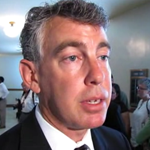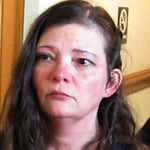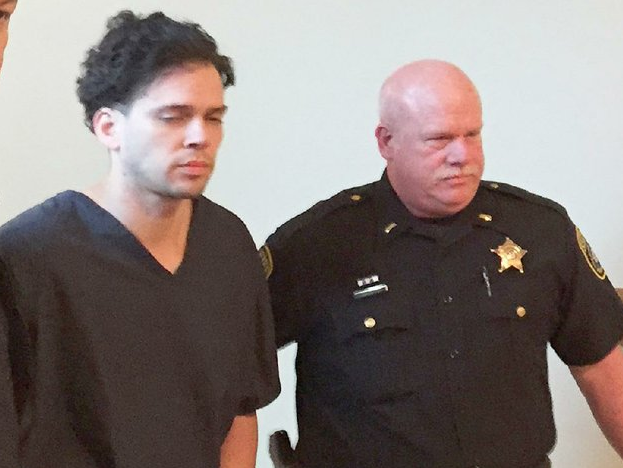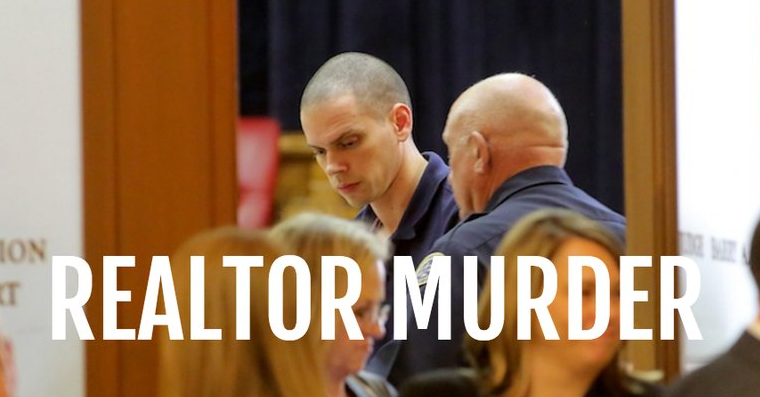Barring some last-minute complication, 12 Pulaski County residents will be selected today to answer the question that's captured the interest of many Arkansans: Who killed Beverly Carter?
A day before his 35th birthday, Arron Lewis, the Jacksonville man authorities say is responsible for Carter's slaying, goes on trial on capital-murder and kidnapping charges.
Jury selection is to begin at 9:30 a.m. today in the Pulaski County Courthouse. Prosecutors are seeking a life sentence.
Lewis has filed notice with the court showing that he denies wrongdoing and that someone else is responsible for the crime. He has claimed to have had assistance abducting Carter, but authorities say their investigation cleared that man.
Lewis' 42-year-old wife, Crystal Hope Lowery, has admitted to being involved in the fatal abduction. She pleaded guilty to first-degree murder and kidnapping last summer for her role in Carter's death in an arrangement with prosecutors that calls for her to testify against Lewis and to receive a 30-year prison sentence.
Carter, a 50-year-old real estate agent, disappeared in September 2014 from an Old River Drive house -- about 4 1/2 miles from her Scott home -- where she had gone to show a prospective buyer.
When her husband arrived searching for her hours later, he found her new Cadillac, with her purse inside, on the vacant house's driveway. The house's front door was open.
Two days later, authorities revealed Lewis to be a "person of interest" in Carter's disappearance when sheriff's deputies handed out a photo of him, taken after the killing, asking the public to be on the lookout for him.
The picture showed Lewis with cropped hair and a black T-shirt with his mouth open as blood dribbles from his nose and mouth over his chin. He also had a half-moon-shaped bleeding cut above his left eye.
Deputies said he had been photographed after wrecking his car. The investigators said he subsequently fled the hospital where he had been taken for treatment of his injuries.
Little Rock police arrested Lewis the next morning, almost 24 hours after the crash, at a city apartment complex where he'd been chased down by officers and a good Samaritan who'd recognized Lewis from TV news and called 911.
Lewis was charged that same day with kidnapping Carter, a mother of three adult children.
The capital-murder charge was added after Carter's body, bound with duct tape, was found buried at the Cabot concrete plant where Lewis had worked. His wife was arrested a month later.
But most of the details about Carter's abduction and killing, along with whatever incriminating evidence investigators found, have been kept under seal, at the request of prosecutors, for the 15 1/2 months it's taken the case to go to trial.
Most of the information that's been revealed has only been made public in the two months before trial in evidentiary hearings and motions.
Barely a month before trial, presiding Judge Herb Wright, responding to defense motions that challenged the legality of the evidence collection, threw out much of the physical evidence deputies had collected.
He also quashed secretly recorded interviews investigators conducted with Lewis after his arrest.
The reason, Wright ruled, was that deputies had repeatedly violated Lewis' rights, both in how they questioned him without a lawyer and by the searches they did of Lewis' home and car.
The judge found that the search warrant for Lewis' home, obtained by Pulaski County sheriff's investigator Zachary Warren, did not cite the proof necessary to authorize a constitutional search. The search warrant for Lewis' car by investigator Jordan Ables was similarly deficient, the judge ruled, deeming both warrants to be illegal.
Among the secret recordings prosecutors won't get to play for jurors is Lewis talking about abducting Carter and explaining how he intended to collect $100,000 in ransom money for her by using forged bank cards.
On one recording, played at a November hearing, Lewis told investigators that deputies are "running out of time," and insinuates that Carter might starve to death.
"The whole thing was about money," Lewis said, telling investigators he expected to "go away for a long time."
"You keep killing time and you're killing her," he said.
Wright has also barred from trial pieces of duct tape and strands of Carter's hair found in the trunk of Lewis' car, along with Carter's cellphone, which was found in Lewis' Jacksonville home.
A cache of guns deputies found in the wall of that home also cannot be used as evidence, nor can a credit-card reading machine they found in the house.
Investigators won't be completely prevented from telling jurors some things that Lewis said while he was under arrest. The judge has deemed some of his statements admissible, but none of them were recorded.
Deputy Jeff Allison, who led the investigation, will be allowed to testify about how Lewis, while promising to show authorities where Carter was being held, took investigators on what Allison called a "goose chase" to two empty buildings, where Lewis said Carter might be held. Allison described those statements at a November hearing.
In one scenario, Lewis described how Carter had been handcuffed and chained to a wall in an abandoned house in Haskell, Allison said.
Allison also will be allowed to tell jurors how Lewis described abducting Carter from the Old River Drive home.
"He told her, 'You're about to have a bad day,''' the investigator testified, saying Lewis also told him how Carter was bound with duct tape, then put in the trunk of Lewis' car.
Among other evidence that the judge deemed admissible is the cellphone Lewis had with him when he wrecked his car. That phone was used to exchange texts and calls with Carter's phone, prosecutors said.
Prosecutors also will be allowed to play for jurors a recording from Lewis' phone of Carter telling her husband to "just do what he says. ... If you call the police, it could be bad."
And last week, the judge cleared the way for prosecutors to use as evidence a series of text messages between Lewis and his wife that prosecutors say show the couple searching for a suitable empty house to use to ambush a female real estate agent to hold for ransom.
Prosecutors said the couple wanted a married victim so they would have someone to ransom her.
A Section on 01/12/2016
REALTOR-SLAYING TRIAL

Beverly Carter
Realtor who was reported missing after showing a house in Scott. Her body was found days later buried behind a Cabot concrete plant.Arron Lewis
The man charged with capital murder and kidnapping in Carter's killing. Prosecutors are seeking a life sentence.

John Johnson
Chief deputy prosecuting attorney for the Sixth Judicial District. Johnson will present the state's case.Bill James
Lead defense attorney for Lewis.

Crystal Lowery
Lewis' wife who earlier pleaded guilty to first-degree murder and kidnapping charges. She is expected to testify.Herbert Wright
Pulaski County circuit judge, who will preside over the proceeding.

